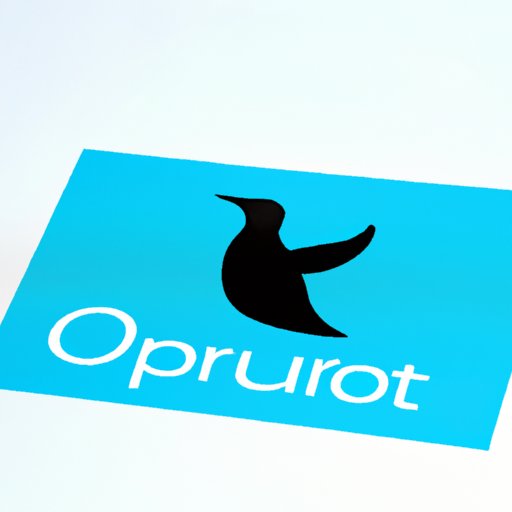
Introduction
Linux is an open source operating system widely known for its reputation as a free alternative to proprietary software like Windows and macOS. But is Linux really free? In this article, we’ll explore the costs and benefits of Linux, compare it to other operating systems, and dive into the ethical and philosophical reasoning behind its free nature. Whether you’re a beginner or an experienced user, read on to learn more about the world of open source software and what Linux has to offer.
Dispelling the Myths: Is Linux Really Free?
The definition of “free” can vary in the context of Linux. While Linux itself is free to download and use, there may be expenses associated with it. For example, you may need to purchase hardware that is compatible with Linux or pay for technical support if issues arise. However, compared to proprietary software, these costs are often significantly lower.
There are also some common misconceptions about Linux being completely cost-free. For example, some people may mistakenly believe that all software available on Linux is free. While there are many free and open source software (FOSS) options available, some may require a licensing fee or a subscription. Additionally, there may be costs associated with training or retraining staff who are used to other operating systems.
Comparing the Costs: Is Linux a More Affordable Option?
Overall, Linux is often a more affordable option when compared to proprietary software like Windows and macOS. This is because Linux is freely available and can be installed on a wide range of hardware. In addition, open source software available on Linux often comes at no cost, further lowering the total expenses associated with using the operating system.
While there may be some potential drawbacks to using Linux, such as a lack of hardware compatibility or higher support costs in some cases, the cost savings can make this option more attractive for many users.
The Ethical and Philosophical Reasoning Behind Linux’s Free Nature
Linux’s free and open source nature can be traced back to the ethical and philosophical beliefs of its creator, Linus Torvalds. Torvalds believed that all software should be free and accessible to everyone, allowing for greater innovation and collaboration within the software development community.
This approach benefits users by enabling them to customize and modify their software to better suit their needs, rather than being limited to the features offered by proprietary software vendors. It also benefits developers by providing a collaborative platform for software development and making their work accessible to a wider audience of users.
There are many notable examples of successful open source software projects and initiatives, from the Apache web server to the Mozilla Firefox web browser. These projects have given rise to entire industries and communities centered around open source technology.
Linux for Beginners: Understanding the Basics of Free and Open Source Software
For newcomers to Linux and open source software, it can be helpful to understand some key terms and concepts. Free and Open Source Software (FOSS) refers to software that is freely available to the public and can be modified and distributed without restriction. Linux is an example of FOSS, as are many of the software applications available on it.
Getting started with Linux can be easier than you might think. There are many distributions (or variants) of Linux available, each with its own user interface and pre-installed software packages. Additionally, there are many online resources available, including tutorial videos and user forums, that can help you get up and running with Linux in no time.
The Business Implications of Choosing Linux: Is it Worth the Cost Savings?
For businesses, the decision to switch to Linux can be a complex one that requires consideration of many factors. One of the most significant benefits of Linux for businesses is the potential cost savings. By using open source software, businesses can reduce their licensing fees and other software-related expenses.
However, there may be potential drawbacks as well. For example, some hardware may not be compatible with Linux, requiring businesses to purchase new equipment. Additionally, technical support needs may be higher in some cases, which could increase costs. Security concerns may also be a factor, as Linux may be less vulnerable to some types of attacks but more vulnerable to others.
The Impact of Proprietary Software on Society: Why Some Choose Linux Instead
Choosing to use open source software like Linux can have political and social implications that go beyond individual users or businesses. Proprietary software vendors often engage in practices that limit user freedom, such as requiring licensing fees or preventing users from modifying their software.
Open source software, on the other hand, allows users to customize their software to their liking and often comes with fewer restrictions on use and distribution. This approach promotes collaboration and innovation, rather than limiting software development to a few large corporations.
There are many examples of organizations that have chosen to adopt open source software, including governments and nonprofits. Some notable examples include the city of Munich, Germany, which switched to Linux and open source software in 2003, and the Wikimedia Foundation, which operates Wikipedia and other online resources using open source software.
Conclusion
So, is Linux “truly free”? While there may be some costs associated with using Linux, particularly in terms of hardware compatibility and technical support, the overall cost savings and benefits of open source software make Linux a more affordable option when compared to proprietary software like Windows and macOS. Additionally, Linux’s free and open source nature promotes collaboration and innovation within the software development community, providing users with greater freedom and flexibility in their software choices.
If you’re interested in learning more about Linux and open source software, there are many resources available online, including user forums, tutorial videos, and online communities. Whether you’re a beginner or an experienced user, there’s never been a better time to explore the world of open source software and all it has to offer.




